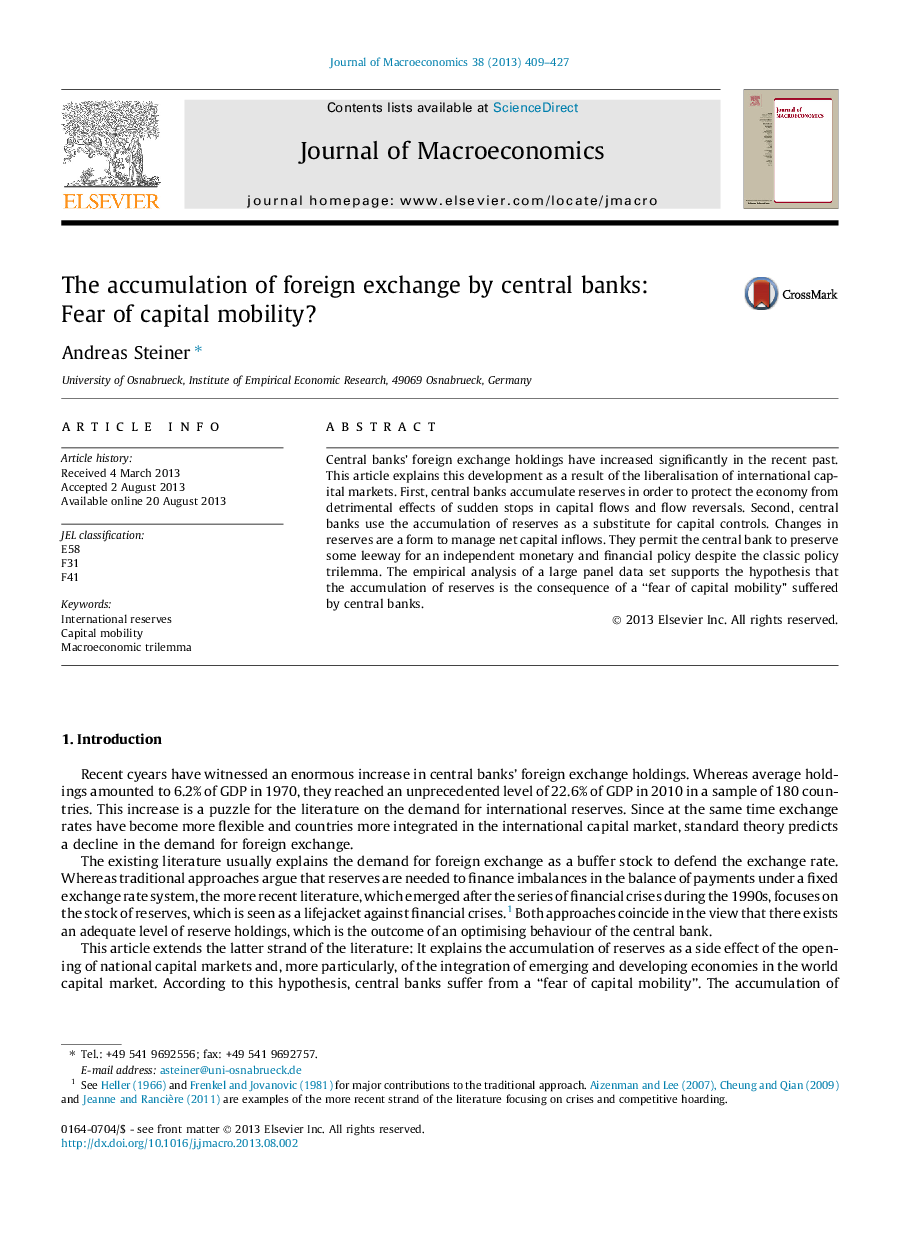| Article ID | Journal | Published Year | Pages | File Type |
|---|---|---|---|---|
| 965822 | Journal of Macroeconomics | 2013 | 19 Pages |
Abstract
Central banks' foreign exchange holdings have increased significantly in the recent past. This article explains this development as a result of the liberalisation of international capital markets. First, central banks accumulate reserves in order to protect the economy from detrimental effects of sudden stops in capital flows and flow reversals. Second, central banks use the accumulation of reserves as a substitute for capital controls. Changes in reserves are a form to manage net capital inflows. They permit the central bank to preserve some leeway for an independent monetary and financial policy despite the classic policy trilemma. The empirical analysis of a large panel data set supports the hypothesis that the accumulation of reserves is the consequence of a “fear of capital mobility” suffered by central banks.
Related Topics
Social Sciences and Humanities
Economics, Econometrics and Finance
Economics and Econometrics
Authors
Andreas Steiner,
